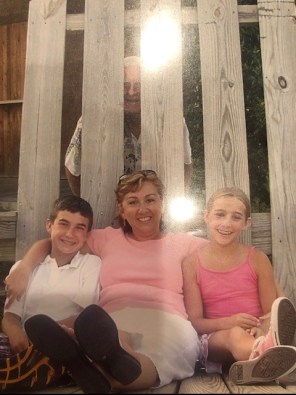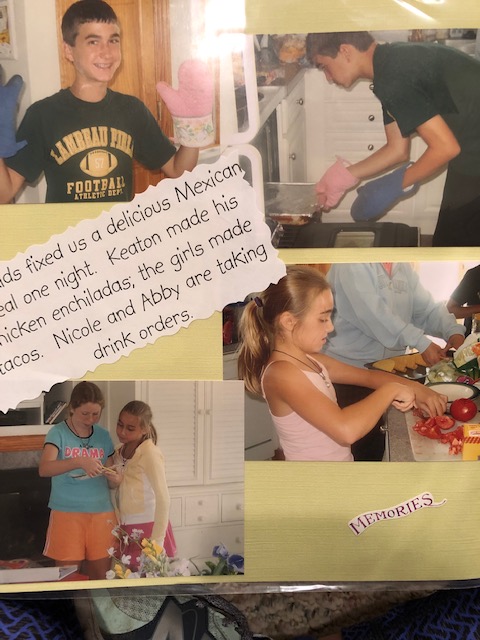Recently, the scandal about celebrities and other Richie Riches buying their kids’ way into prestigious colleges broke in the news. While this comes as no surprise to the other 99%, it rather brought a few things into focus for me that have knocked around in my head for years.
While there are certainly still good parents around, it seems that there is a large population of parents who have lost their way. Toxic parents aren’t only the rich and famous, they come from every single socio-economic group; in my experience, however, it seems that the privileged have a corner on this market. Ask any school administrators in a privileged area, and they will regale you for hours about parenting horror stories. I’m even afraid to share the most egregious one I know for fear that the parents involved will sue me (I am in utter sincerity, here—these people are a shining example of awful). Further, the audience for this piece would be the parent (or future parent) who is able to see to their child’s basic needs. If one is concentrating on putting food on the table and finding clothing for one’s family–this piece might seem frivolous.
So much has been written about parenting that I hesitate to add my voice to the throng, but if this resonates with even one person, then maybe it was worth it.
 There are multiple facets to being a good parent. In my opinion, the four skills that must be taught in order to raise functioning adults are:
There are multiple facets to being a good parent. In my opinion, the four skills that must be taught in order to raise functioning adults are:
Respect,
Responsibility
Resiliency
Self–Reliance
In their efforts to make sure that their kids have a great life, parents sometimes go overboard in what they perceive as protecting them rather than inculcating these skills.
A great upbringing MUST include learning how to respect oneself and others, learning to be responsible to oneself, family, and community, learning how to be resilient by bouncing back from and overcoming setbacks and disappointments, and learning how to be reliant on one’s own skills and ability to make decisions.
Respect
Even the youngest child can be taught basic respect. I’ll never forget what my mom said to me when my firstborn child was learning to talk and “needed” something. She said, “He is old enough to say please and thank you.” And she was right. Maybe some new parents don’t have anyone giving them an example to follow or advice when it can do some good. Here’s a pic of Child #1 and me around the time he started learning some manners. Please enjoy my mushroom-style hair-do:

Parenting gets a little trickier as the child enters school. There is a frequent game plan for the parent who does not teach his/her child respect. Perhaps the child has just engaged in some shenanigans at school (it doesn’t matter the severity of the infraction—the game plan is always the same).
Toxic Parenting Game Plan:
- Insist that the child didn’t do anything wrong.
- Threaten to sue the teacher, the school, the principal, the other kids, the neighbor, whomever.
- Maybe tell a few lies or repeat the one-sided version of the story that the parent has accepted from the child without question.
- Think of a convoluted excuse to get out of any punishment. Insist that your child made a poor decision because of any of the following: a disability, the influence of the “real” bad guys, his/her friends, any temporary condition like a headache, or ignorance.
Just so you know that we always tried to put our money where our mouths are…when Child #1 was a fairly new driver he had a truck that he drove to school. One day I got a call from the SRO (School Resource Officer) telling me that a woman had witnessed our son (she gave his license plate # and described the truck) driving poorly (too fast and apparently he went around someone) in the school zone. I thanked the officer and told him we would deal with it at home.
When I asked Child #1 about it, he denied any wrong-doing. He also said that anything he possibly did wrong MUST be exaggerated. If his father and I followed the toxic parenting playbook, we would have insisted on his innocence, took his word over that of an adult in the community, maybe insisted on meeting with the SRO to clear his name, found out who the woman was, given her a piece of our minds, posted about it on social media, and started a troll war.
What we did was this: He wasn’t allowed to drive for a few days. We also took the part of the “witness”. My reasoning was that for a person to go to all the trouble of getting our son’s license #, go into the school, and talk to the SRO–there had to have been some sort of issue. In other words, we didn’t take our child’s word for it. He was a good kid and he’s a great adult now. At that point he needed to understand that he needed to respect laws and the safety of others. Full disclosure: he still maintains innocence. Whatever.
When the parent models toxicity for the child, the child learns not to respect authority, develops feelings of entitlement, and eventually becomes a stunted adult. This child will in turn become a poor parent (and neighbor, community member, employee, etc).
Respect Part II: Respecting the “NO”
When my kids were about 13 and 10 or so, we were in Blockbuster on a Friday evening (circa 2001). A woman and her kids were in front of us in the checkout line and the kids were being obnoxious. They were begging for candy and anything else that Blockbuster had so conveniently and thoughtfully placed right there just as you were about to escape.
The mom kept saying, “No, we’re not getting any candy. No, we’re not getting any popcorn. No, you can’t have that giant Pixie Stix. No, no, no…”

This, of course, seemed perfectly normal to my two who were just wishing that the kids would shut up. Then, at the last moment before going to the cashier, the mom suddenly said, “Okay, pick out something you want.”
If heads could snap off necks, my children would certainly be haunting Ichabod Crane now. Their eyes wide, they looked up at me incredulously. My oldest whispered, “She should not have given in. Why would she do that?”
How sad is it that a thirteen-year-old saw the truth of the situation more than the adult involved. Unfortunately, what we witnessed was probably a regular pattern for her and her kids; those children knew exactly how much her word was worth. They did not respect her word or her “no”.
If you can’t be strong in the small battles, you’ll never win the ones with bigger stakes when the child is older. If your child doesn’t respect your “no”, your child won’t respect anyone else’s “no” either. If you break your word consistently, your word has no value.
Respect Part III: The importance of your word
Struggling parents might not know my dad’s axiom for parents and teachers:
Don’t make threats you can’t follow through with; follow through with all your threats.
Now, my dad never said this in so many words to me, but it is a lesson that has helped me handle many a situation.

Here’s how he taught me this:
When I was about 6 or 7, my mother served chipped beef on toast for lunch one Saturday. For those of you uninitiated into the tasty charm of chipped beef on toast, it is also referred to as “sh** on a shingle”. As a child, I did not care for it, to put it mildly.
As we sat down to lunch, looking at my plate in dismay, I said, “I’m not eating this.” My dad said, “You’ll either eat it or wear it.” (Now, Dad probably didn’t really think this threat through or he might have chosen a different one—perhaps not getting anything to eat at all?, but with his usual panache, he threatened me with wearing my food). So, as many a child before or after me would naturally do, I called his bluff. Down my face went into the gravy, only to be raised from my plate with bits of chipped beef jauntily hanging from my eyebrows. Here is a photo to help you with just how appealing chipped beef on toast looks:

To our credit, both dad and I burst out laughing. In case you think my mother cheerfully prepared me an alternate entree, think again. Dad told me to go get my face cleaned off. When I plopped back down in my seat, he said, “Eat up.” And. I. Did.
If your kids know that you mean what you say and that you’ll stick to it, they are much more likely to follow your instructions. Without whining and begging. The caution in this axiom is, of course, to not make a foolish threat. Threats should be fair and the punishment should fit the crime. Threats should also not be thrown around like confetti; they should be used judiciously.
A parent has a responsibility to a child to help them be the best person they can be. Keeping one’s word is a powerful lesson. If you don’t keep your word consistently, your word has zero value. Others will learn that you can’t be counted upon or trusted.
Responsibility
Responsibility has so many different facets in the family dynamic. Parents have a responsibility to meet a child’s basic needs so that the child is nurtured and safe. Parents also have a responsibility to teach the child responsibility so that child can grow into a contributing adult.
How do you teach a youngster to be responsible for their own behavior? To do their part in any sort of group situation (anything from chores at home to group projects at school to cleaning up after an event in which they took part, etc)?
I have one word for you: modeling. Be the person that society NEEDS your child to grow up to be. Volunteer to help where it’s needed. Do more than is asked. Look for ways to help that might not be visible to everyone. Be gracious. Have good manners. Do the right thing.
Involve your child in any and all of these activities. Give them responsibilities to take care of at home or for their team or their club(s). Ask them what they are doing to contribute to any group they are involved in. Actively discourage free-loading.
To illustrate this point, here is a pic of our kids and their cousin fixing dinner for extended family on vacation. This is a light-hearted example, but it shows how easy it is to teach involvement and ownership. Certainly, we were right there in case they needed us, but THEY did the work. And it was delicious.

When our children have a responsibility to a given outcome, they take ownership of it. Being a contributing member of society means being responsible for more than just yourself.
Resiliency
Another one of my dad’s axioms is, “Kids will be kids, no matter whose kids they are.” In my experience as a public school teacher and the wife of a public high school assistant principal, I’ve seen that parents unfortunately think that every stupid thing their kids do is a reflection upon them. It is very hard to swallow that kids do stupid things because they’re kids. Their prefrontal cortex is not fully developed; they are simply incapable of making good decisions all the time—no matter how terrific their parents might be.
Resiliency goes hand in hand with responsibility; the examples I’ve used in part are interchangeable. Parents would be much better served to let their kids take their just desserts rather than displacing their anger at whatever unlucky school administrator/teacher/coach is in their line of fire. If your kid does something wrong, the lesson you teach him/her should be the following:
1. Own up to whatever you did.
2. Apologize when necessary.
3. Take your punishment and move on.
This lesson leads to responsible ADULTING.
There are times, of course, when the child does nothing wrong and yet still might be disappointed in an outcome. It is OKAY for your child to have disappointments. Your job as a parent is to help them to navigate those disappointments and the feelings that come with them.
When our youngest child was auditioning for a part in the high school musical, she came home afterward and immediately burst into tears. She explained that she had helped others read for parts they wanted but that they had left before she had a chance to read for a part that SHE wanted (there was a lesson in self-advocacy right there). I encouraged her to go back to the audition since it was still going on and talk to the director to see if she could still read for a part. We talked about respectful language and discussed what she might say. Off to the school we went, parked the car, and I moved to get out. She said, “What are you doing?” I replied that I thought I’d accompany her to talk to the teacher (which I should not have done, by the way). She said, “If I can’t go back in there and talk to him then I don’t deserve to read for a part anyway,” and off she went. #proudmamamoment
Self-Reliance
The final piece of helping kids reach a successful adulthood is to give them opportunities to be self-reliant. Many parents do this by giving their children chores to do each week. Other parents ask their children to do their own laundry once they’re capable. Kids are capable of so much more than we give them credit for—often at a younger age than we expect.
The way it looked in our house was that we tried to stress that we were a team that worked together.

The kids were called upon to help with whatever needed done at the moment. If there was an evening when our schedules just wouldn’t allow us to eat together, our kids knew their way around a kitchen enough to fix themselves a simple supper.
Or, if there was a problem at school and they needed to talk to a teacher or classmate, we brainstormed possible language and communication strategies to use—without my husband or me intervening. The same went for any difficult decision that needed making—lay out the possible outcomes/pros/cons and then allow the child to make the decision. (*There might be some super important decision that the parent needs to make–and the parent should do just that. There are many more mundane decisions that happen day to day that the child should learn to make for him or herself, however).
Ownership of a decision is an important piece of self-reliance. The child learns to consider consequences and to live with them.
There is so much “out there” about parenting, raising children the “right” way, etc. Other writers have used some of the same verbiage that I have used here, but the lessons, illustrations, and experiences are wholly mine. I hope they speak to you. We MUST do what we can to train up better adults; it DOES take a village.

I couldn’t agree more! I couldn’t love this more! Discipline and accountability truly seem to be a thing of the past. We are raising our future. Weak parenting begats weak citizens, leaders etc.
Thank you for your educated insight!!
LikeLiked by 1 person
I enjoy reading Marla’s blog . We are friends of her parents who are outstanding and well respected members of the community and I can hear her dad saying “eat it or wear it”!! That phrase was also said to our two kids as well when growing up!
Keep on blogging Marla!
Looking forward to your next one!
LikeLiked by 1 person